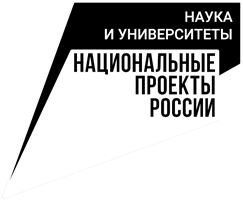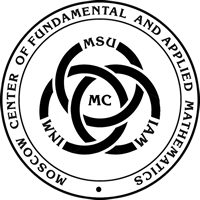166th meeting of the seminar
«Mathematical modeling of geophysical processes: direct and inverse problems»
The seminar is devoted to the consideration of various aspects of mathematical modeling of physical processes in the atmosphere, hydrosphere and active layer of land, associated with solving problems arising in the study of the problems of climate change and the natural environment.
Seminar Organizing Committee
| Leaders: |
Doctor of Physics and Mathematics A.V. Glazunov (Marchuk Institute of Numerical Mathematics of RAS) Doctor of Physics and Mathematics I.A. Repina (A.M. Obukhov Institute of Atmospheric Physics of RA) Doctor of Physics and Mathematics V.M. Stepanenko (RCC MSU, Geographical Faculty of Moscow State University) |
| Secretary: |
A.V. Debolsky (RCC MSU, A.M. Obukhov Institute of Atmospheric Physics of RAS). |
PROGRAM
17:15
| M.I. Varentsov | RCC MSU, Hydrometeorological Center of Russia,, A.M. Obukhov Institute of Atmospheric Physics of RAS |
URBAN INFLUENCE ON WEATHER AND CLIMATE: OBSERVATIONS, MODELING AND FORECASTING.
The popular science lecture is devoted to the issues of urban weather and climate impact, which attract increasing scientific and public interest against the background of global warming, urbanization and growing demands of society for comfortable and safe urban environment. Modern approaches to the study of the meteorological regime of cities based on observational and modeling data, as well as their consideration in various scientific and technological tasks, including weather and climate forecasting, urban planning, interdisciplinary research at the interface with other natural and social sciences are considered.
All these issues are considered based on the materials of a series of works carried out with the participation of the speaker for various Russian cities, including the Moscow agglomeration, which is an extremely convenient testing ground for such studies, and a number of cities in the Arctic zone of the Russian Federation, which until recently remained terra incognita of urban meteorology. A distinctive feature of the cycle of works is a wide range of research methods used. They include both classical for modern meteorology methods of analyzing station observations and setting numerical experiments with atmospheric models, and innovative approaches, including experimental measurements using unmanned aerial vehicles, analysis of crowdsourced data of "people's monitoring", and machine learning models. Much attention is paid to the problems of quantitative description of urban environment properties necessary for interpretation of observational data and as input parameters for models.
The seminar will be held in the form of a webinar on the Zoom platform.
Topic: семинар "Математическое моделирование геофизических процессов: прямые и обратные задачи".
Time: February 15, 2024 05:15 PM Moscow (GMT+3)
Meeting ID: 899 4688 5139
Passcode: 185199
Video recordings of the seminar are available on our youtube channel.
For communication on all issues related to the work of the seminar, please contact the academic secretary Andrey Vladimirovich Debolsky at and.debol@srcc.msu.ru

